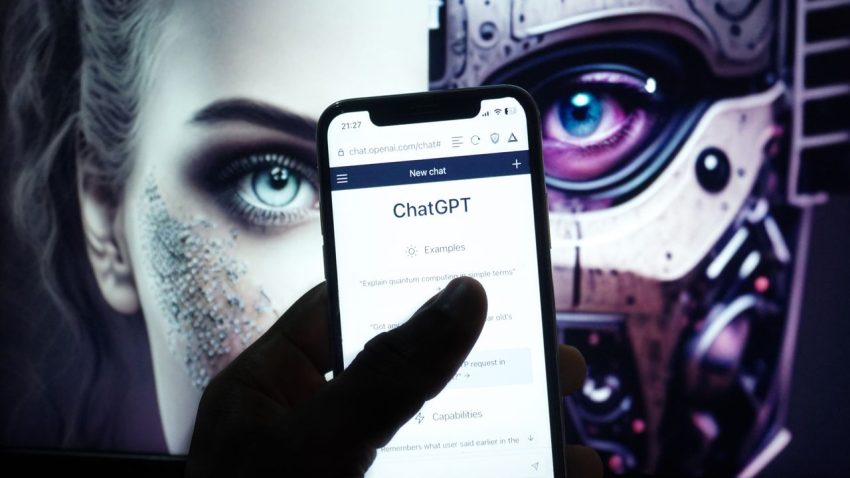Exploring the Role of AI in Philosophical Thinking
Artificial Intelligence (AI) has long been associated with tasks such as writing, productivity, and even therapeutic support. However, a growing number of individuals are beginning to explore its potential as a thinking companion rather than just a content creator. This shift raises an intriguing question: Can AI help us think more clearly, especially when grappling with complex, philosophical questions that lack definitive answers?
This approach may seem counterintuitive at first. Why would someone turn to artificial intelligence to explore concepts like free will or morality? The answer might lie in the unique perspective AI offers. Unlike humans, AI is not bound by personal biases, emotions, or preconceived worldviews. While this can make its creative output feel somewhat sterile, it also provides a structured, analytical lens that can be incredibly useful in navigating abstract ideas.
To test this hypothesis, I posed several timeless, unanswerable philosophical questions to a range of popular AI tools. These included ChatGPT, Claude, Gemini, Perplexity, and Pi. Each tool was asked the same set of questions to observe how they approached ambiguity, provided foundational knowledge, and offered insights into these deep, thought-provoking topics.
Question 1: What is the Meaning of Life?
The first question—what is the meaning of life—was met with varied responses. None of the tools claimed to have a definitive answer, but each offered a different approach. ChatGPT provided a structured response, covering multiple perspectives including philosophical, spiritual, and cosmic views. It even referenced pop culture, adding a touch of humor with a nod to “Hitchhiker’s Guide to the Galaxy.”
Claude, on the other hand, took a more reflective tone, incorporating existentialist thought and quoting Viktor Frankl. Its response encouraged further introspection by asking the user what aspects of meaning resonated most with them.
Gemini delivered a dense, information-packed reply, covering absurdism, nihilism, and religious perspectives. Its bullet-point format made it feel more like a textbook than a conversation. Perplexity followed a similar path, offering a well-structured overview with citations for further reading.
Pi, however, took a more conversational approach, stating, “It’s whatever you make of it.” While warm and friendly, its response felt less substantial compared to others.
Question 2: Is Free Will Real?
This question sparked a deeper debate among the AI tools. Claude stood out by presenting both arguments for and against free will, while also encouraging the user to reflect on their own intuition. It posed a compelling question: “Does it feel like you’re genuinely choosing—or discovering what you were always going to do?”
ChatGPT covered major theories, including determinism and compatibilism, in a clear and organized manner. Gemini provided a thorough, academic response, citing relevant neuroscience research. Perplexity offered a solid overview with links to source material, making it ideal for those seeking further exploration.
Pi, once again, took a more casual tone, acknowledging the complexity of the issue without pushing the user to think deeply.
Question 3: What Makes a Person Good?
This question generated the most variation in tone and depth. ChatGPT began with a strong opening, describing the concept of goodness as ancient and layered. It then outlined values like kindness and empathy before posing thoughtful questions.
Claude excelled here by analyzing traits of goodness through various ethical frameworks, such as virtue ethics and deontology. Its response felt like a blend of philosophy and therapy, encouraging reflection on moral nuance and cultural context.
Gemini provided a detailed breakdown, covering traits, intentions, consequences, and cultural influences. Perplexity offered a structured, well-organized response with clear paths for further exploration.
Pi, once again, kept things simple, focusing on common traits like honesty and empathy. While pleasant, its response felt a bit obvious.
Insights from the Experiment
Each AI tool demonstrated strengths based on its design and purpose. Perplexity and Gemini leaned toward providing foundational knowledge, making them excellent for research. Pi, with its conversational tone, was more about support than deep analysis. ChatGPT offered clarity and engagement, while Claude stood out for its ability to encourage deeper thought and introspection.
Ultimately, none of these tools can provide definitive answers to philosophical questions. These are debates that have persisted for centuries, designed to challenge our understanding of ourselves and the world around us.
However, the value of using AI in this context lies not in the answers, but in the process of questioning itself. AI serves as a mirror, reflecting how we argue, explain, and think. It helps us see where we might go next, especially if we lack a critical thinking partner in real life.
In the end, AI can be a powerful tool for exploring philosophical questions, even if it doesn’t offer the final word. It models the ways we engage with complex ideas, helping us form our own perspectives and understandings.
